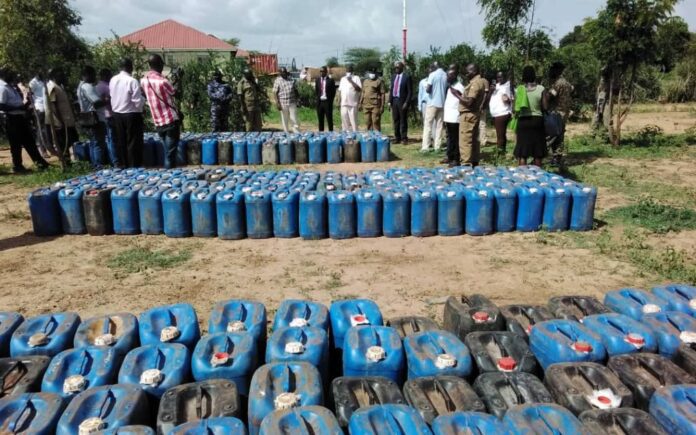It’s easy to blame individuals for their addictions. It’s much harder to confront the collective failure that occurs when addiction becomes a leading cause of death.
In Kotido, a district in Uganda’s Karamoja region, nearly 500 people have died over the past 15 years, not from war, not from disease, but from drinking crude waragi, a toxic, illegally brewed alcohol.
This isn’t merely a public health crisis. It is a moral, economic, and political failure.
According to a report by the Karamoja Peace and Environmental Protection Service (KAPEPS), the victims include mothers, young men, and even warriors, many of whom died after drinking on empty stomachs. Some collapsed from liver failure. Others were killed in alcohol-fuelled raids. This is not about recreational drinking. It’s about desperation, poverty, and systemic neglect.
Let’s be honest: people don’t drink themselves to death when they have better options.
Crude waragi has become both a symptom and a weapon of poverty. Smuggled in jerricans from towns like Jinja and Mbale, it is cheap, unregulated, and often laced with lethal chemicals. It courses through Karamoja’s villages like poison in the bloodstream, unchecked by the institutions meant to protect the people.
Authorities claim they’re cracking down. Police conduct raids. Church leaders speak out. The Kotido District Council even passed an ordinance to ban crude waragi. But here’s the uncomfortable truth: legislation without livelihoods is lip service.
You can’t outlaw addiction. You can only replace despair with dignity.
And dignity can only be achieved through both government intervention and community initiative. I recently visited Moroto Market and was struck by how many of the vendors were not Karamojong, but traders from Mbale, Kampala, Jinja, and beyond. This speaks volumes. If outsiders see opportunity in Karamoja, why not the local population?
Part of me wants to hold the government accountable—and rightly so. But the people of Karamoja must also confront difficult truths. If schools are built and teachers deployed but students don’t show up, can we lay all the blame at the government’s feet? If markets are constructed but remain empty, haven’t we lost the moral high ground to criticize?
A mother in Napumpum told KAPEPS that she watched her husband die from waragi-induced liver failure. Now her teenage son skips school to drink the same brew. “There is no food only alcohol,” she said. How many more families must we bury before we admit that we are not addressing root causes?
Karamoja is battling more than just alcoholism. According to the 2024 National Census, 46% of Ugandans experience food insecurity. The Karamoja Cluster report links hunger, displacement, and alcohol abuse in a vicious cycle. When people are starving, they don’t invest in tomorrow they numb themselves to survive today.
If government officials are serious, they must move beyond press releases and police patrols. They must invest in rehabilitation programs, rural enterprise, food security, and community infrastructure. Because as long as waragi remains cheaper than a meal, it will continue to be the hopeless person’s escape.
And let’s not pretend this is just a Kotido problem. What’s happening there is a magnifying glass on a national crisis. We have allowed poverty to ferment into poison, and its effects are not confined to one district.
Kotido’s waragi deaths are not isolated tragedies—they are the result of a broken system. And we all share responsibility.
If we continue to do nothing, more lives will be lost. More children will be orphaned. And another generation will be buried not in promise, but in jerricans and grief.
It’s time to choose: will we keep sending condolences or will we finally send hope?















